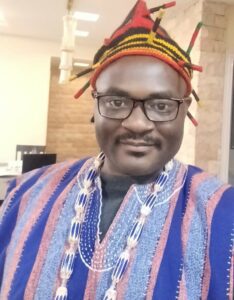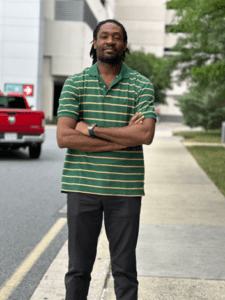
Global Public Health Curricula are Not Fit for Purpose
By guest contributors Luchuo Engelbert Bain, Ojong Samuel Akombeng, and Daniel Krugman
Global public health education is in crisis. In a world facing a polycrises, not only did two-thirds of employed recently graduated public health professionals report gaps in their academic training, but the field cannot keep up with the growing number of recent graduates with public health skills. While the established public health curricula might churn out technically proficient practitioners and managers, there is neither a guarantee that they will find stable employment nor be enabled to address systematic issues if a position is gained. It is highly plausible that most programs do not render future graduates competitive enough for available jobs in the field.
In line with institutionalisation of “Global Health” itself, the educational models and frameworks used to train Global Health (GH) practitioners of all kinds were forged in the Global North and exported to the rest of the world. The Consortium for Universities of Global Health’s (CUGH) has proposed a global health competences toolkit to guide GH development curriculum which is based on technoscientific and biomedical knowledge developed in formerly colonised regions. In our view, the basis of GH education must/should be seen as one primed on structures, contexts, local/Indigenous knowledge, and process that intrinsically determine the standards for public health as well as how practitioners should think about themselves and the world—thereby creating the parameters that favour the broader global social system they live in.
Graduates from the Global North curricula are intentionally or unintentionally predisposed to accept outdated thinking, reductionistic frameworks, and naïve assumptions designed to protect the status quo and the overarching larger systems that benefit the Global North. Epistemic dominance in GH education and practice remains a sad reality. Global crises are still framed as abnormal phenomena that can be fixed with the current business-as-usual scientific approaches. GH’s contribution to the failures of national – “evidence-informed” – policies demand a transgression of this latent paradigm. Further, science and evidence in these programs are foregrounded as a force of providing “good” solutions to transnational institutions. This approach ignores how politics ultimately gets to determine who lives and who dies. A great example is the failure of the Covax model in ensuring vaccine equity during COVID.
We are in a GH era where funders control the agenda, are big behind-the-scenes supporters of big pharma, push unsustainable, one-size-fits-all solutions that create an unending cycle of dependence, with priorities that are predetermined, “innovation” is stifled, predefined or guided, and political agendas intentionally side-lined (hidden). Educationists and practitioners are thus not only left implementing programs destined to fail, they are ill-equipped to challenge this broader system having come from institutions designed to discipline students into adherent, politically inactive technocrats who do not challenge power dynamics within the field.
In our view, a meaningful change in GH education must integrate 3 critical dimensions: intellectual humility, bottom -up context informed practice, and political-diplomatic awareness. First, GH educationists must be intentional in inculcating a culture of intellectual humility to future practitioners. This culture of parallel and bidirectional learning in their engagements is critical in dismantling epistemic dominance. Secondly, people centred – community driven approaches as a gold standard in research and global health programming are highly needed in properly integrating and acknowledging Indigenous knowledge for relevant, adapted, and scalable interventions for health. Lastly, developing skills to recognize and navigate the political-diplomatic dimensions of GH funding and practice.
Leadership is the single most required skill in achieving real results for the vulnerable. Thus, GH curricula need to urgently address the leadership crisis in the sector. As Mahmoud Fathalla put it, “Mothers are not dying because of diseases we cannot treat; they are dying because societies have yet to make the decision that their lives are worth saving.” That statement didn’t come from a manager—it came from a leader. Jim Grant and Mahmoud Fathalla showed us that leadership, more than technical skills, changes the world. We need leaders who challenge the status quo, inspire others, and create real change. GH actors must rise beyond the mindset of attempting to manage crises to leading change that matters through being willing to speak the hard truths about the failures of Global Health’s structuring.
The narrative of “theory” versus “practice” must be rethought. While exposure to fieldwork, community engagement, and real-world problem-solving must expand in order for trainees to develop necessary skills, but how to think about these experiences and the practice of public health in different localities must embrace a pluralistic view. Rather than falling dominant Western-Centric approaches and devaluing local/Indigenous knowledge is central, students must be given the theoretical frameworks to understand how technoscientific and biomedical tools and thinking are synthesised into ways of knowing and the political economy.
The crowded space for formal employment in GH renders traditional models of absorption by government/academia/organizations (International Non-Governmental Organizations, Civil Society Organizations, etc) unrealistic and non-sustainable. How can graduates create jobs within the global health knowledge ecosystem? Unemployed global health graduates undoubtedly do not lack skills. This calls for the formalization of new paradigms like global public health entrepreneurship. Indeed, graduates can establish businesses of their own, or apply specific skills that will support specific areas across the global public health value chain.
Global South institutions have to take the responsibility to prioritize coming up with curricula that are fit for purpose: match local realities and needs. These must be inclusive, relevant, and adapted to the local needs and realities. Strengthening local capacity is not enough. Trust and intentionality in recognizing Indigenous knowledge and innovation are highly needed. Indeed, epistemic respect and recognition are not handed on a platter of gold: they are deserved, they are seized.
Global public health students should be armed not only to target the traditionally structured academic, international organizations, government job market, to knowing that they can be entrepreneurs. Indeed, global public health entrepreneurship will provide unique skills to students to create jobs for themselves, or identify new opportunities in the knowledge generation – to use value chain. Decolonizing knowledge systems remains central, with a cultural shift from the established unidirectional north – south paradigm in knowledge generation, respect, and translation (intentional or unintentional), to being intentional in creating minds that appreciate and are aware of north – south – south – north parallel learning models as a default epistemic value or ideal in global public health scholarship.
About the Authors:
Luchuo Engelbert Bain is a global public health physician, implementation research scientist, and empirical bioethicist with over 15 years of global health experience. He has a diverse background and experience working in sexual reproductive health and rights, research/empirical (bio)ethics, health systems strengthening, and evidence synthesis. His work primarily focuses on low and middle-income countries, integrate cutting – edge prioritization of gender equality and inclusion, and the use of gender transformative and intersectionality lenses in dissecting global health problems. Dr Luchuo values transdisciplinarity in teamwork and values the use of decolonial knowledge approaches in bridging the research to policy gaps, through context relevant bottom-up co-created research agenda setting and knowledge sharing and translation models. Luchuo heads the International Programs Unit at the African Population and Health Research Centre, APHRC, Nairobi, Kenya.
Samuel Akombeng Ojong is a seasoned Health Manager with UNICEF, currently providing authoritative guidance for the delivery of UNICEF’s Health Programmes, including maternal, newborn, child, and adolescent health (MNCAH), HIV, immunization, health system strengthening (HSS), and community health. His work is grounded in an equity-based primary healthcare approach to improve health outcomes in Mozambique. A former Obstetrician-Gynaecologist in resource-limited settings in Central Africa, he is a dedicated advocate for improving maternal and newborn health outcomes in sub-Saharan Africa ahead of the 2030 SDG deadline. Samuel is also pursuing further expertise at Johns Hopkins Bloomberg School of Public Health, as a DrPH student on the Women’s and Reproductive Health concentration.
Daniel Krugman is a PhD student in Anthropology at Brown University. Trained in public health science, he is also a Predoctoral Trainee at the Population Studies and Training Center and a Visiting Researcher at the African Population and Health Research Center. Grounded in medical anthropology, drawing from linguistic anthropology, and theorizing with science and technology studies, he studies the ideologies and pragmatic of social change through the decolonizing Global Health movement. Working in the service of abolitionist and liberatory movements, he conducts his theoretical and public health work in pursuit of anti-hegemonic, anti-colonial, and anti-capitalist global public health thinking and infrastructures.
Original source: https://speakingofmedicine.plos.org/2024/10/16/global-public-health-curricula-are-not-fit-for-purpose/








